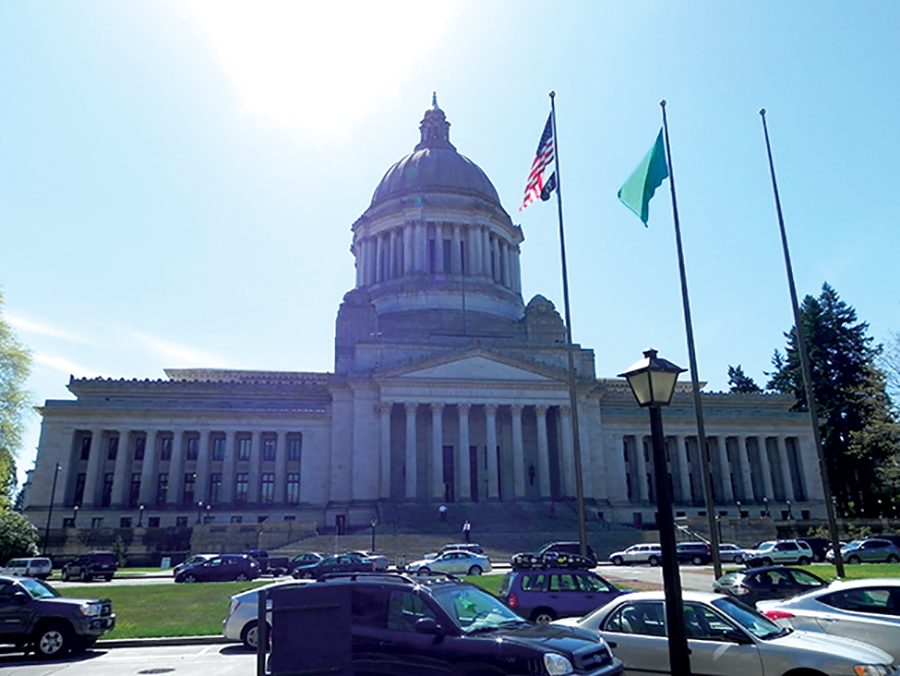
Home » State budget, data privacy are top priorities for retailers in 2021
State budget, data privacy are top priorities for retailers in 2021

Gov. Bob Ferguson and the Legislature are at odds over the budget, with Ferguson saying the Legislature’s proposals rely too heavily on new tax revenue.
Courtesy state Department of Enterprise ServicesNovember 12, 2020
Washington retailers will be laser-focused on the state budget when the 2021 Legislature convenes in January.
They also expect lawmakers to revisit a data privacy bill that passed in the Senate this year but not the House. It has been revised for 2021.
Mark Johnson, senior vice president of policy and governmental affairs for the Washington Retail Association, said tax policy will dominate the Legislature and is the chief issue facing the industry. The association represents more than 4,000 retailers, from small shops to big box national chains.
The industry employs 400,000, it said.
Washington faces a $4.5 billion hole in the wake of the economic damage inflicted by the Covid-19 pandemic, according to a September estimate by the state Office of Fiscal Management.
It is a mixed blessing. As Johnson noted, the agency originally predicted a $9 billion hole over the next three years.
The impact may be lessened, but lawmakers have little choice but to cut programs and raise taxes. Johnson said retailers are watching.
They have a big stake in taxation. Sales taxes and gross receipts taxes (i.e., business and occupation taxes) generate about 38% of its budget. Raising it is an obvious target.
Border communities such as the Tri-Cities can expect a sales tax exemption that encourages visitors from Oregon, Montana, Alaska and the provinces to shop in Washington to end. Currently, visitors can apply for refunds, a new system that proved expensive to manage.
Killing it altogether will bring in $20 million to $25 million.
“That’s huge for anyone along a border, including the Tri-Cities,” he said. “It’s low hanging fruit and the Legislature will probably approve it.” But it hardly closes the budget gap.
It will take a big raise to get there. A temporary sales tax is another idea being “kicked around” in Olympia.
Every half-cent added raises about $500 million. The state levies a 6.5% sales tax on retail purchases. Raising it to 7%-7.5% would raise $1 billion-$1.5 billion.
“That moves the needle in the direction they need to go,” Johnson noted.
The sales tax rate in Benton and Franklin counties is 8.6%, which includes the state rate as well as local public safety sales taxes, transportation and other items.
Opponents argue the sales tax is regressive and falls heavier on lower-income households that spend a higher percentage of their wages.
But Johnson said he has not heard as much discussion about raising property taxes, which represent about 17% of the state budget. Johnson said there is talk of a “split roll” that would shift higher taxes to commercial properties.
The retail association does not view that favorably. It would be unfair to raise taxes on businesses that cannot operate at capacity because of the pandemic.
Johnson said a capital gains tax is thorny as well. What level do you set it at — $250,000? $500,000? $1 million? Do you include primary residences? Vacation homes? Stocks and bonds?
The capital gains tax, which the Washington Policy Center regards as an income tax, has been introduced in the past three sessions.
Johnson said a capital gains tax could be harmful to family-owned businesses that own their real estate as a retirement fund.
Johnson said data privacy is the second largest issue for the coming session. A bill passed the Senate but not the House in 2020 over concerns about facial recognition software. Johnson said the retail association supports the 2021 version, which drops the facial recognition piece and preserves ethical uses that enable customer loyalty programs.
The Legislature’s 2021 regular session convenes on Jan. 11.
Retail
KEYWORDS november 2020





